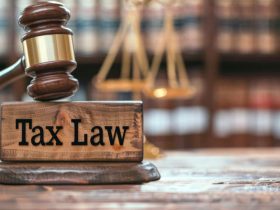Tax planning is important; if you don’t act by the end of the year, you’ll certainly shed out and end up paying more tax than essential.
While doing year-end tax planning, you are predicting your income and expense for the following year and how much tax obligation you’ll owe after that.
This also includes expenses to be paid at particular times as well as withholding the proper quantities, so you don’t bear in mind a surprise tax bill.
In short, tax planning is all about predicting where your income is likely to end up for that given tax year and what your marginal tax rate is.
But tax planning is not straightforward, so here are some smart tax tips to get you started.
Table of Content
- Explore tax allowance for your personal savings
- Make use of ISA/Tax-Free saving allowance
- Make use of marriage allowance
- Make use of annual pension allowance
- Use tax-free allowance when making financial gifts
- CGT annual exemption
- Look for more complex but tax-efficient investment scheme
- Make a plan for high-income child benefit charge
- Make use of tax-free Childcare scheme
- Take guidance from experts for help with tax
- Winding Up
1. Explore tax allowance for your personal savings
The government gives allowance in tax.
This includes Personal Savings Allowance: a tax-free allowance for interest payments which is £1000 for the basic-rate taxpayer and £500 for the higher-rate taxpayer but doesn’t apply to the additional-rate taxpayer.

All taxpayers can also receive a £2,000 tax-free allowance for dividend income.
It is beneficial to take the guidance of a tax advisor to explore whether you are making the best use of this allowance.
2. Make use of ISA/Tax-Free saving allowance
Savings in an ISA are not subjected to income tax and capital gain tax (CGT).
If you have a saving account, you should have an ISA.
The overall ISA allowance is currently £20,000 – which doesn’t carry over between tax years, so it is beneficial to use as much of your allowance as you can afford to by 5 April each year.
The limits for ISA types are,
- Cash, Stocks and Shares, Innovative Finance ISA – £20,000 a year
- Junior ISA – £4,365 a year
- Lifetime ISA – £4,000 a year with no monthly maximum amount
- Help to Buy ISA – £2,00 a month for an existing account
3. Make use of marriage allowance
In marriage allowance married couple can transfer a proportion of tax allowance to the partner who has less income, provided they are a basic rate taxpayer.
This could be a great idea if one spouse pays tax at a lower rate than the other.
Who fulfils the following can apply for this allowance,
- You must be in a civil partnership or married
- One of you must be a basic rate taxpayer
- One of you must be a non-taxpayer
4. Make use of annual pension allowance
Investments in your pension are free from tax.
You can place up to 100% of your salary or £40,000 into a pension, tax-free.
Besides, any past year pension contribution allowance that had not been used can be carried forward, but for the last three tax years only.
Use of pension allowance can reduce the earnings you get taxed on, possibly bringing your earnings for tax purpose down into another tax bracket.
Plus, your pension allowance can be backdated for up to three years.
So, if you have used none or only some of the £40,000 allowance from previous years, then you can carry forward that amount and use up to a possible £160,000 this year, tax-free.
Before claiming previous years unused allowances, you must use up the current year’s allowance in full.
When your total taxable income is more than £150,000, then your allowance will be decreased, which is called a tapered annual allowance. It was first introduced in 2016.
As an instance, for the current year, if your total income is £160,000, then your annual allowance is £35,000, and if your income reaches £210,000, then you will have the allowance of £10,000.
Rules are changing from next year and minimum allowance will be £4,000.
5. Use tax-free allowance when making financial gifts
You can make a range of financial gifts each tax year.
You can gift up to £250 to any person each year without being subjected to inheritance tax (IHT) bill.
These small gifts can be repeated many times as per your wish plus unlimited payments towards the living costs of elderly dependent, a child or ex-spouse.
6. CGT annual exemption
The annual exemption is £12,300 for financial year 2020/21.
You can dispose of some unrelieved gains before the end of the tax year to use up your annual exemption.
If we talk about married couples, then they taxed individually, so transferring an asset from one spouse to another before realizing a gain will be tax efficient.
The annual exemption cannot be carried forward, so it is essential to use the annual exemption each tax year.
Besides, when you sell a property which qualifies for the main residence tax relief, you don’t have to pay CGT on it.
Main resident relief is extended for 18 months after you vacate the property.
7. Look for more complex but tax-efficient investment scheme
If you are a higher-rate taxpayer who can tolerate a high level of investment risk, then you can also consider more complex tax-efficient investments.
Such investments include Venture Capital Trust, the Enterprise Investment Scheme (EIS), or the Seed Enterprise Investment Scheme (SEIS).
These schemes offer generous income tax and CGT cuts to offset the added risks of investing in smaller, younger and unquoted companies.
8. Make a plan for high-income child benefit charge
Under child benefit charge, the government recovers all or some of any Child Benefit Claimed where the taxable income of the claimant exceeds £50,000.
To keep the taxable income below that threshold, you can reduce it by exchanging your salary in return for employer pension contribution, or by making personal pension contributions.
9. Make use of tax-free Childcare scheme
By using Tax-Free Child scheme, you can receive up to £2,000 (£4,000 in case of a disabled child) a year for each of your children to help in childcare cost.
The government will pay £2, for every £8 you pay your child care provider.
And finally the best tip,
10. Take guidance from experts for help with tax
A tax advisor will ensure that you have fully considered your options, allowing minimize tax and protect your future wealth.
With the knowledge of taxation rules and regulations, a tax expert can guide you in tax planning for a company as well as for you.
An expert tax advisor will save your tax by help you forming effective tax planning strategies.
So, it is always good to take guidance from an expert tax specialist for the year-end tax planning.

Wrapping up
A good tax planning can ensure that you pay the optimum level of tax and take advantage of all the opportunities and allowance available to you.
By taking the time to plan today, you could save yourself thousands of pounds in the future, which could help your business and family.










Leave a Reply